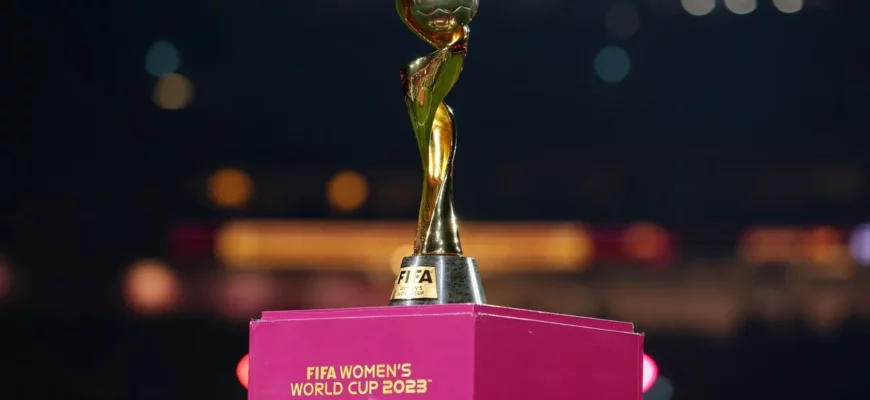The FIFA Women`s World Cup is slated to grow significantly for its 2031 edition, expanding the number of participating nations from 32 to 48. This move will align the women`s competition with the men`s World Cup, which is also set to feature 48 teams beginning with the 2026 tournament hosted by the United States, Canada, and Mexico. This latest increase comes after the Women`s World Cup recently expanded from 24 to 32 teams, a change that took effect at the 2023 event in Australia and New Zealand.
In an official statement, FIFA declared, “After consultation with the confederations and other stakeholders, and given the remarkable recent strides made by women`s football across the world, the FIFA Council has unanimously decided to expand the number of participating teams in the FIFA Women`s World Cup from 32 to 48 as of the 2031 edition.” The decision, made during a virtual council meeting, aims to dramatically increase global representation, providing greater access to elite competition for more countries and players, and accelerating investment in women`s football worldwide.
FIFA outlined the structural changes for the larger tournament: “The 48-team FIFA Women`s World Cup will adopt a 12-group format, increasing the total number of matches from 64 to 104 and extending the tournament by one week.” The requirements for hosting the 2031 and 2035 editions of the tournament have been adjusted accordingly to accommodate this expanded scale.
Given the ongoing improvements and growth in the women`s game, further expansion was seen as a necessary step, building upon the recent move from 24 to 32 teams. While there have been suggestions about potentially expanding the men`s World Cup even beyond 48 teams, such a proposal would likely be met with controversy due to the existing heavy schedule demands on players globally.
The next tournament, scheduled for Brazil in 2027, will retain the 32-team format and is set to run from June 24 to July 25. Spain will compete to defend their title. The United States women`s national team, now led by coach Emma Hayes, will be focused on improving their performance after being eliminated in the Round of 16 at the 2023 World Cup following a penalty shootout loss to Sweden. While the overall increase in teams might raise the general level of competition to win the World Cup, for top teams like the USWNT, winning their group might become slightly more attainable, potentially creating a more favorable route through the knockout stages.
FIFA Updates Disciplinary Code on Racism
In addition to the expansion news, the FIFA Council also announced significant revisions to its disciplinary code, specifically aimed at tackling racism. The updated code introduces new measures designed to combat discriminatory behavior both on and off the field of play. These include harsher sanctions for racist incidents, such as increased fines and the potential for matches to be forfeited. Furthermore, the established three-step protocol for stopping matches due to anti-LGBTQ+ chants has been broadened to include racist chants as grounds for halting play. FIFA`s member associations are mandated to adopt these revised codes, and FIFA retains the right to appeal cases involving racist abuse to the Court of Arbitration for Sport.
President Gianni Infantino commented on the changes, stating, “The revised Disciplinary Code represents a step change in FIFA`s objective to enhance its regulatory framework to prosecute and sanction discrimination and racist abuse in cooperation with our 211 FIFA Member Associations.”









